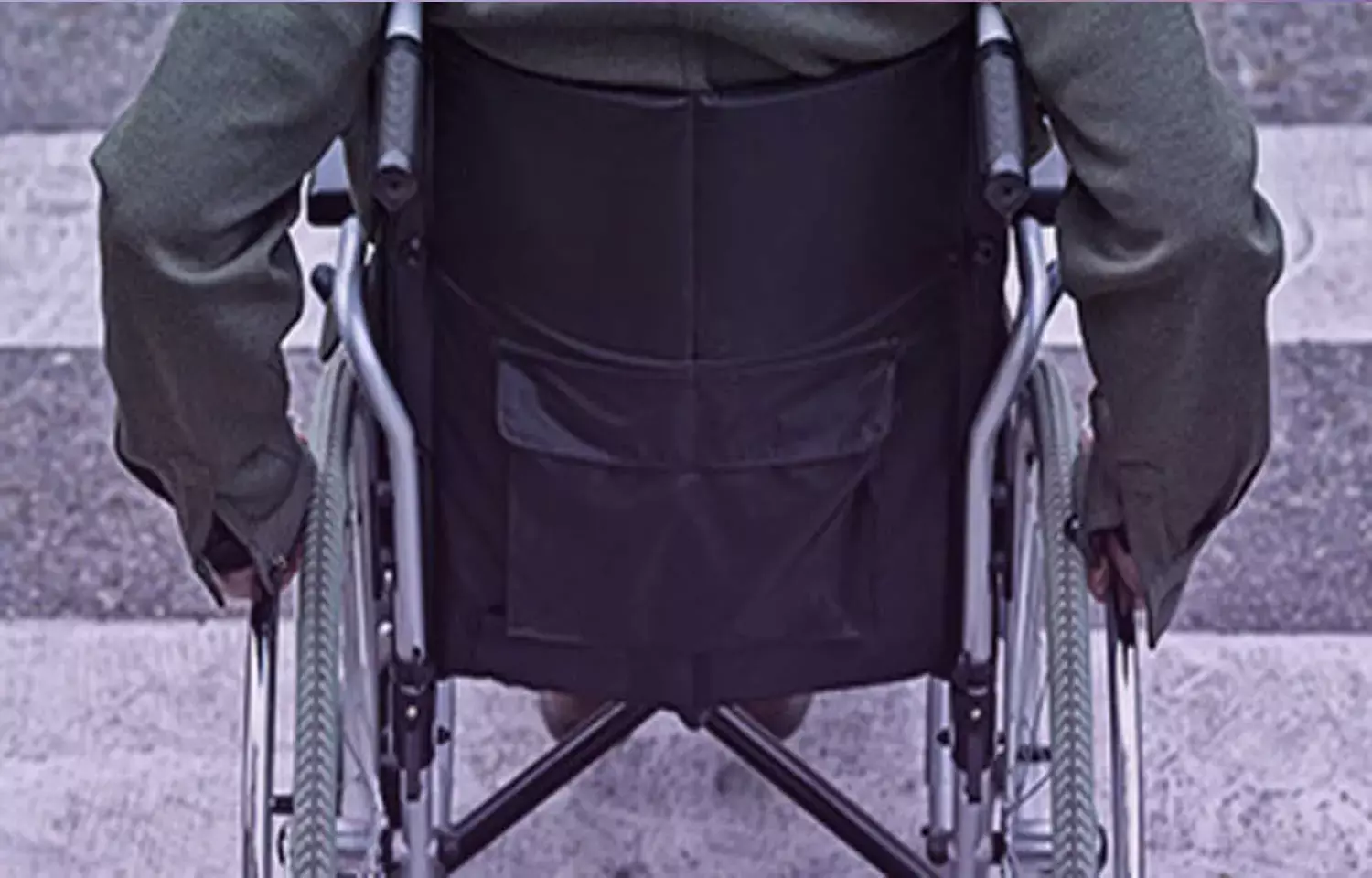- Home
- Medical news & Guidelines
- Anesthesiology
- Cardiology and CTVS
- Critical Care
- Dentistry
- Dermatology
- Diabetes and Endocrinology
- ENT
- Gastroenterology
- Medicine
- Nephrology
- Neurology
- Obstretics-Gynaecology
- Oncology
- Ophthalmology
- Orthopaedics
- Pediatrics-Neonatology
- Psychiatry
- Pulmonology
- Radiology
- Surgery
- Urology
- Laboratory Medicine
- Diet
- Nursing
- Paramedical
- Physiotherapy
- Health news
- Fact Check
- Bone Health Fact Check
- Brain Health Fact Check
- Cancer Related Fact Check
- Child Care Fact Check
- Dental and oral health fact check
- Diabetes and metabolic health fact check
- Diet and Nutrition Fact Check
- Eye and ENT Care Fact Check
- Fitness fact check
- Gut health fact check
- Heart health fact check
- Kidney health fact check
- Medical education fact check
- Men's health fact check
- Respiratory fact check
- Skin and hair care fact check
- Vaccine and Immunization fact check
- Women's health fact check
- AYUSH
- State News
- Andaman and Nicobar Islands
- Andhra Pradesh
- Arunachal Pradesh
- Assam
- Bihar
- Chandigarh
- Chattisgarh
- Dadra and Nagar Haveli
- Daman and Diu
- Delhi
- Goa
- Gujarat
- Haryana
- Himachal Pradesh
- Jammu & Kashmir
- Jharkhand
- Karnataka
- Kerala
- Ladakh
- Lakshadweep
- Madhya Pradesh
- Maharashtra
- Manipur
- Meghalaya
- Mizoram
- Nagaland
- Odisha
- Puducherry
- Punjab
- Rajasthan
- Sikkim
- Tamil Nadu
- Telangana
- Tripura
- Uttar Pradesh
- Uttrakhand
- West Bengal
- Medical Education
- Industry
Autologous adipose injection provides shoulder pain relief for wheelchair users with SCI: Study

USA: Micro-fragmented adipose tissue (MFAT) injection has lasting pain-relief effects for rotator cuff disease in wheelchair users with spinal cord injury, finds a recent study in the Journal of Spinal Cord Medicine.
Shoulder pain occurs commonly in wheelchair users with spinal cord injury as they rely only on their upper limbs to perform everyday tasks. Pain often is caused by soft-tissue injuries such as damage to rotator cuff tendons. Many non-surgical therapies for shoulder pain exist, including equipment modifications, physical therapy, and pain medication but these have shown limited efficacy. Persistent shoulder pain can significantly affect the quality of life. In case of failure of conservative therapies, shoulder surgery is frequently the only option, which comes with its own set of risks and potential setbacks.
Nathan Hogaboom, Kessler Foundation, West Orange, New Jersey, USA, and colleagues aimed to establish safety and treatment effects of micro-fragmented adipose tissue injections under ultrasound guidance for treatment of refractory shoulder pain caused by rotator cuff disease in wheelchair users with spinal cord injury (SCI) to prepare for a larger trial.
Ten wheelchair users with chronic spinal cord injury who had moderate-to-severe shoulder pain for more than six months caused by refractory rotator cuff disease participated in the study. All received an injection of MFAT and were evaluated at six and 12 months after treatment. Evaluation metrics included the 11-point Numerical Rating Scale, the Wheelchair User's Shoulder Pain Index, Brief Pain Inventory pain interference items (BPI-17), Patient Global Impression of Change, ultrasound and physical examinations, and adverse events.
Key findings of the study include:
- There were no significant adverse events throughout the study period. WUSPI, NRS, and BPI-I7 scores were significantly lower 6 and 12 months post-procedure.
- Of those who remained in the trial, clinically meaningful changes (≥30% decrease) in WUSPI, NRS, and BPI-I7 scores were observed in 77.8%, 77.8%, and 66.7% of participants, respectively.
- All but one participant reported improvement in clinical status.
"These results show that the minimally invasive injection of micro-fragmented adipose tissue is a safe and efficacious option for wheelchair users with shoulder pain caused by rotator cuff disease," said Dr. Gerard Malanga, a founder of the New Jersey Regenerative Institute and visiting scientist at Kessler Foundation. "Based on the success of our study, a randomized controlled study with a larger number of subjects has been initiated in this patient population through funding from the New Jersey Commission for Spinal Cord Research," he added. " We feel there is great potential for this therapy to help people with shoulder pain manage their symptoms and improve their quality of life. We credit our success to the Derfner Foundation for providing the initial funding to pursue this promising intervention, and acknowledge the ongoing efforts of the Alliance for Regenerative Rehabilitation Research & Training to advance the fields of rehabilitation sciences and regenerative medicine."
"MFAT injection under ultrasound guidance is potentially a safe and efficacious treatment for refractory shoulder pain caused by rotator cuff disease in wheelchair users with SCI. A larger, randomized controlled trial has been initiated," wrote the authors.
Reference:
The study titled, "A pilot study to evaluate micro-fragmented adipose tissue injection under ultrasound guidance for the treatment of refractory rotator cuff disease in wheelchair users with spinal cord injury," is published in the Journal of Spinal Cord Medicine.
DOI: https://www.tandfonline.com/doi/full/10.1080/10790268.2021.1903140
Dr Kamal Kant Kohli-MBBS, DTCD- a chest specialist with more than 30 years of practice and a flair for writing clinical articles, Dr Kamal Kant Kohli joined Medical Dialogues as a Chief Editor of Medical News. Besides writing articles, as an editor, he proofreads and verifies all the medical content published on Medical Dialogues including those coming from journals, studies,medical conferences,guidelines etc. Email: drkohli@medicaldialogues.in. Contact no. 011-43720751


